What has been the impact of the Covid-19 pandemic on international cooperation? Much has been written on this complex issue. Here are a few reflections ranging from the micro to the macro, from how aid workers and organizations have been affected individually, to more systemic impacts on global governance and development policies.
1st paradox: simultaneous standstill and acceleration
As the pandemic took hold, states introduced border control and domestic confinement measures that restricted mobility, affecting all of us in various ways. We experienced the paradox of simultaneous deceleration and acceleration. Lockdowns brought our daily routines and many of our projects and activities to a standstill. At the same time, new ways of working, learning and interacting were catalysts for rapid reforms, many of which were barely considered or deemed unrealistic before the pandemic.
This paradox affected international cooperation actors as well, changing the way international organisations and non-governmental organisations operate. Restrictions on mobility accelerated a trend towards greater empowerment of ‘local staff’. As expatriates were sent back home or were unable to move to their next assignment, national staff members were tasked with managing operations, assuming greater responsibility and ensuring business continuity. This accelerated a trend towards ‘aid localisation’ through greater devolution of power, responsibility and accountability to national staff and a reflection on the functions of – and profiles required in – field offices versus headquarters.
2nd paradox: the state is back while non-state actors gain prominence
A second paradox relates to the reassertion of the primary role and remit of the state in addressing the crisis, with non-state actors emerging at the same time as crucial responders and key stakeholders in international cooperation.
In the context of mounting geopolitical tensions, not least between China and the US, we have seen greater engagement from science and industry as well as from civil society organisations in international cooperation. The pandemic strengthened the role of multi-stakeholder governance, whereby science and business came to play a more prominent role. Researchers in multiple academic institutions around the globe teamed up to better understand and address the pandemic. As the host of the World Health Organization (WHO), GAVI and other key organisations in the fight against the pandemic, Geneva is well placed to further develop as a major physical and virtual global health hub.
As the initial health crisis quickly turned into an economic and social crisis, the state – and its executive branch in particular – reasserted itself as the one in charge. Each government prioritised domestic health priorities as well as economic and social policies to mitigate adverse impacts of the pandemic at home, often at the expense of regional and international cooperation. This is clearly illustrated by vaccine nationalism we are witnessing in some rich nations. Elsewhere, the use and abuse of exceptional measures accelerates the tendency towards more autocratic states violently repressing mounting social contestation movements as a result of the Covid-19 crisis.
3rd paradox: national retreat when international engagement is needed
A third paradox is to witness a nationalist retreat trend at a time when greater investment in international cooperation is required to come to grip with the global pandemic.
The Covid-19 crisis has magnified pre-existing fragilities and reversed hard-won development gains. For the first time in more than a decade, there has been a rise in the number of people living below the international poverty line. According to the World Bank, up to 150 million slid back in absolute poverty in just eight months. The most vulnerable were hit first and hardest. Many of the 80 million people currently forcibly displaced from their homes are particularly exposed to contagion risks in overpopulated camps. People in fragile, conflict-affected contexts suffer from a lack of access to adequate sanitation, healthcare and Covid-19 personal protection equipment. The emergence of new variants of the coronavirus is a stark reminder that none of us will be safe until everyone is. Successfully fighting the pandemic will require addressing the needs of the most vulnerable in priority, which requires greater investment in international cooperation.
The case for greater cooperation
As developing countries struggle to address the Covid-19 fall-out, they must be able to mobilise domestic resources required to fund ambitious health, social and economic policies. Taxation and fiscal matters are key in this context.
Yet, according to UNCTAD’s Economic Development in Africa 2020 Report, $90bn is lost annually to illicit financial flows in Sub-Saharan Africa, or about 4% of the region’s GDP. Fighting against illicit financial flows and the ensuing erosion of the tax base will be critical, especially with the pandemic aggravating the debt burden of poor countries. A priority in resource-rich developing countries – which largely depend on revenues from commodity exports to finance development – should be curbing illicit financial flows accruing from commodity trade mispricing in order to strengthen their tax base and mobilise greater domestic resources.
Every crisis presents opportunities. The pandemic has accelerated digital transformation and boosted the internet economy, offering Africa an opportunity to leapfrog development obstacles and promote rapid economic diversification. The IFC estimates Africa’s future internet economy will soon reach $180bn. Seizing this opportunity is all the more timely now that the continent is set to acquire new comparative advantages, moving away from a relative abundance of land that favored the primary sector (commodity export) to a relative abundance of labor, which is favorable to the development of the manufacturing and services sectors.
Gilles Carbonnier
Professor of development economics at the Graduate Institute Geneva & ICRC Vice-President
gilles.carbonnier@graduateinstitute.ch


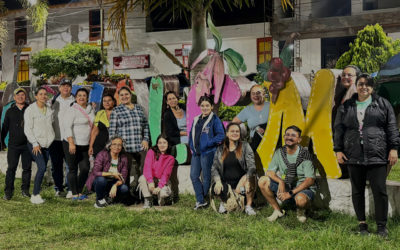
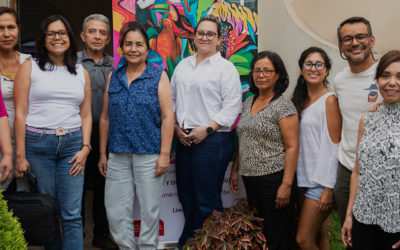
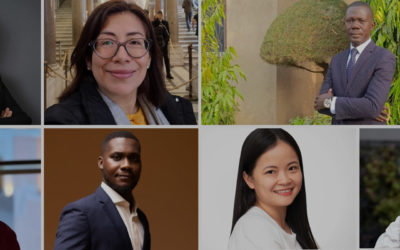
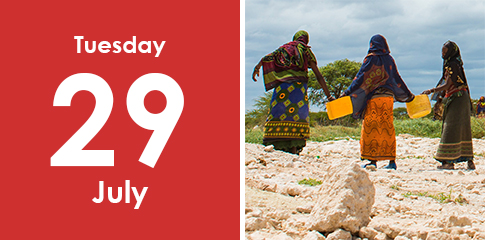

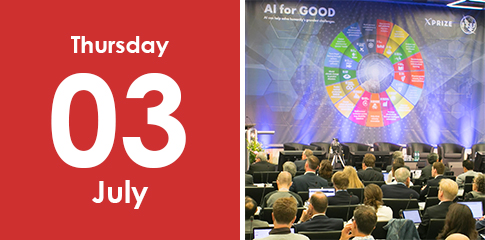

0 Comments